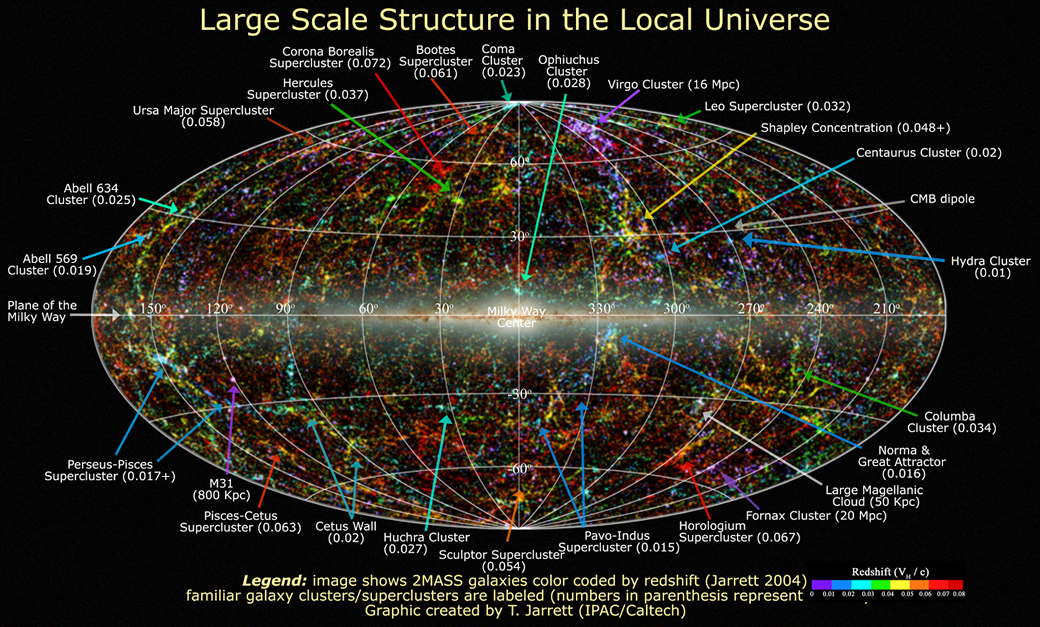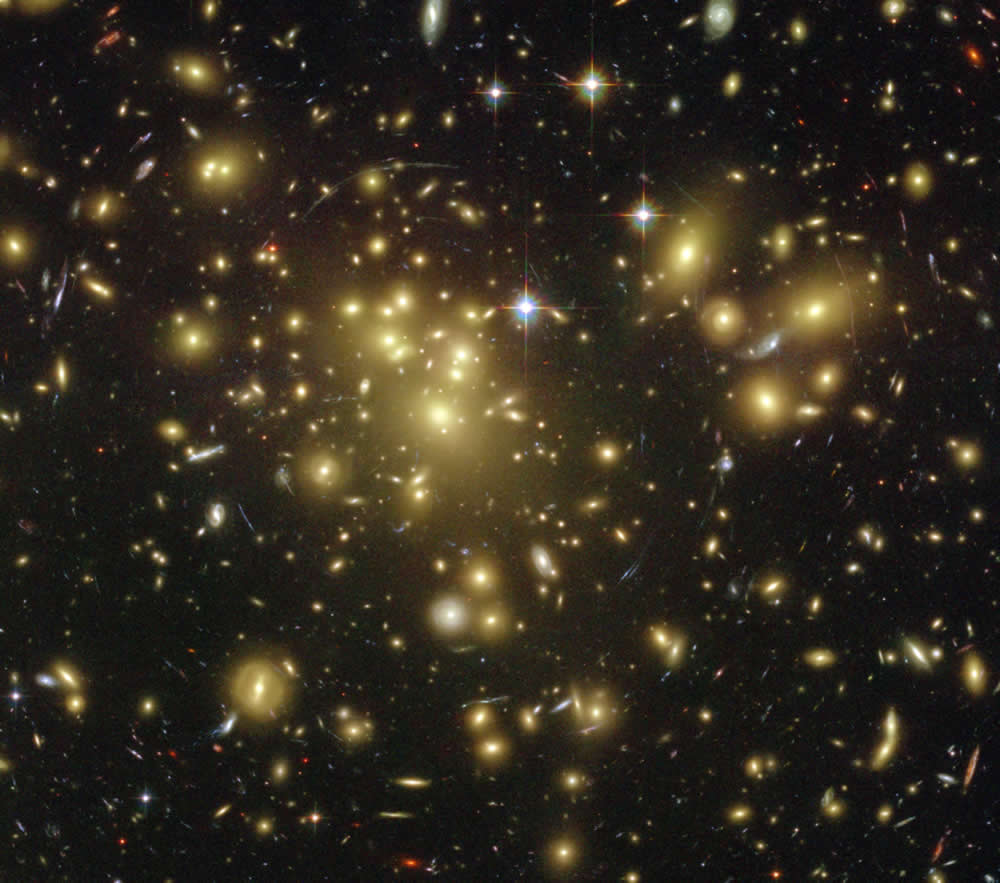Beaconator
Valued Senior Member
In order to map the universal now you would need an equation that measures time faster than the speed of light.
Yes, mapping requires an observer. The observer introduces spatial relativity.In order to map the universal now you would need an equation that measures time faster than the speed of light.
On a 2 dimensional temporal plane all points have the same NOW.
When we place an alarm clock on every point on that plane and set the alarm at the same time on all clocks, there will come a "time" when all the alarm clocks will ring at the same time @ NOW over the entire plane's temporal dimension.
Not at all!In order to do that, the clocks have to be synchronised in advance. If you are at one clock, and I am at the other, and we know the distance between us is 1 lightsecond, then we can both agree that our clocks are synchronised if I see your clock displaying a time that is 1 second before mine, and you see my clock as displaying a time that is 1 second before yours. Agreed?
Note that I am not talking about any delay or finite speed of timeNote that the 1 second delay is due to the finite speed of light, and it has already been accounted for in this synchronisation scheme. So the fact that you and I are observers does not have to ruin the underlying fact that the clocks are synchronised.
Not at all!
You keep introducing observers...
...and spatial dimensions.
Note that I am not talking about any delay or finite speed of time
Take away the observers and you take away relativity and the need for any synchronization scheme.
Without observers on the spatial plane, the relativity problem simply doesn't exist.
I am not complaining at all. I am saying they are irrelevant and you should remove them from the equation.I showed how observers do not ruin the synchronisation scheme, so they are not an issue. But here you are complaining about them anyway.
To a spatially located observer. Remove the observer and all the alarms go off at exactly the same time, regardless if there is an observer!Even though you were the one who said, "the sound from each clock has to travel a longer distance". Whatever.
No, I am not talking about SR, you are. I have no observer, you do. I need no observer, you do.Incorrect. Your lack of understanding of SR is duly noted.
Jeez man. I qualified that statement as belonging to you and your insistence on introducing an observer.You talked about the time it takes for the sound of the alarms to travel to the observers, which is a delay due to the finite speed of sound. It is also a non-issue, because that is not the reason that there is no universal now in SR.
This is what you said verbatim; "Note that the 1 second delay is due to the finite speed of light". IOW Time is relative to SOL and therefore finite.I don't know what you mean by finite speed of time, I never said that. I said finite speed of light.
Write4U,
How do you know your proposed array of alarm clocks all go off at the same time? Tell me the actual test procedure that you would do in order to determine it.
I don't need to observe it. The mathematical logic forbids anything else.
For this universe as a whole it does. [quote Einstein would not be very proud of you right about now. Are you an anti-relativist by any chance?[/QUOTE] No of course not. IMO you are unnecessarily introducing SR to the OP question.So you claim that mathematics itself forbids anything else other than a universal now.
Quite. Write4U seems to think there is a frame of reference called "the universe". I'm afraid he's (i) too thick to understand what you are telling him and (ii) too blinded by his obsession with his quasi-religious notion of the "mathematical universe" to want to understand. Dutch stubbornness.So you claim that mathematics itself forbids anything else other than a universal now. Einstein would not be very proud of you right about now. Are you an anti-relativist by any chance?
Well, since you are so good at mathematics, you might want to look at the Lorentz transformation equations.
https://en.wikipedia.org/wiki/Lorentz_transformation
I would direct your attention to the time equation in which t is time in one inertial system, and t' is an unequal time in a different inertial system. *Sigh*
No, I think that our Universe spacetime) is a physical object (geometry)Quite. Write4U seems to think there is a frame of reference called "the universe".
So the universe is not a thing? That is news to me. What happened to the expanding "singularity" with a singular existence ?I'm afraid he's (i) too thick to understand what you are telling him and (ii) too blinded by his obsession with his quasi-religious notion of the "mathematical universe" to want to understand. Dutch stubbornness.

And here we are looking at a relativistic representation from Earth's POV.Here is a map of our local universe as we've see it from earth. The large bands and clusters of galaxies are what we would see if we could zoom out.

As our universe ages, galaxies close to one another will form giant clusters and will eventually form giant elliptical galaxies similar to what we see in the above image. As we have discovered, despite gravity pulling together galaxies into these clusters, the universe as a whole is expanding at an accelerated rate due to Dark Energy, a force pushing the Universe apart.... so what will happen?

Depending on the actual expansion rate and if it will change in the future (due to dark energy increasing, staying the same, or decreasing as time goes on), the universe may end in a few different scenarios. The most likely is that the universe will continue to expand at the same rate until all the stars and galaxies go dark.
If the universe accelerates at a greater rate in the future due to the increase of dark energy, the rate will be so great that even the space between stars within galaxies will expand and the universe will rip itself apart.
In the other version, if dark energy decreases in the future, the force of gravity will overcome and pull the universe back to its starting point and collapse in on itself. What's Beyond?
What lies beyond the universe? We are not sure but can theorize what lies beyond the universe that we know. Outside the bounds of our universe may lie a "super" universe.
That sounds like a contradiction to me.Space outside space that extends infinitely into what our little bubble of a universe may expand into forever.
SR!Lying hundreds of billions of light years from us could be other island universes much like our own. But why can't we see them? It's a possibility that they are so far away that by the time their light reaches us, it may have lost so much energy that we cannot detect it, or our universe may end by the time it reaches us.
And I subscribe to the following scenario as it allows for a beginning from a state of nothingness and avoids the conundrum of an a priory irreducible complexity. [/quote] Outside this expansion lies a higher dimensional space-time universe which we are unfolding into. Since it is a higher dimension, we cannot see, detect it, or comprehend it.[/quote] I reject this scenario as it introduces yet another infinite irreducible complexity instead of infinite irreducible simplicity.Another theory is that we are creating space as our universe expands.
Yea, well that notion carries a lot of baggage.Yet another hypothesis is that we are stuck inside a black hole of a larger universe outside of it.
https://observatory.astro.utah.edu/universe.htmlIn short, there are many theories about what may be out there. But since our view is so small and the universe is so vast, we may only be able to imagine what is there. We may be only able to see the effects on a large scale and theorize what is causing it.
To overcome the expansion of the universe and view it from the outside as an observer is far beyond our mathematical motivations. Less is known about the edge of the universe than black holes.So the universe is not a thing? That is news to me. What happened to the expanding "singularity" with a singular existence ?
OK, but that just means everybody is guessing and we have a level playing field for all possible configurations.To overcome the expansion of the universe and view it from the outside as an observer is far beyond our mathematical motivations. Less is known about the edge of the universe than black holes.
It means the math is near impossible.OK, but that just means everybody is guessing and we have a level playing field for all possible configurations.
I stick with my attempt at a purely objective model of an expanding universal spacetime as a singular object that has its own chronological timeline (Nows) emerging with its continued existence.
IMO, that simple model is defensible at all levels.
For us it is.It means the math is near impossible.
What is a "temporal plane"?On a 2 dimensional temporal plane all points have the same NOW.
Temporal dimensions, plural, you mean. You said it is a 2 dimensional temporal plane, remember?When we place an alarm clock on every point on that plane and set the alarm at the same time on all clocks, there will come a "time" when all the alarm clocks will ring at the same time @ NOW over the entire plane's temporal dimension.
The plot thickens!But as soon as you introduce an observer you introduce a spatial dimension and the problem of 3D relativity from the point of the observer.
Is this just an overly-complicated way of saying that sound takes time to travel from place to place?IOW when all the alarm clocks sound the alarm at the same NOW over the entire 2D temporal dimension, to the spatial observer it becomes a relatively infinite continuation of sound as the sound from each clock has to travel a longer distance and reaches the observer later than all the closer clocks.
What's a "subjective relative reality"? What is it relative to? How is it real?Therefore, the introduction of an observer creates a subjectively relative reality, that can only be mediated by differential synchronization of clocks to account for the different spatial distances to the POV.
On your 2 dimensional temporal plane, you mean?Keep the observer out of the equation and you get objective temporal synchronicity, a universal NOW.
Please explain your reasoning.In order to map the universal now you would need an equation that measures time faster than the speed of light.
